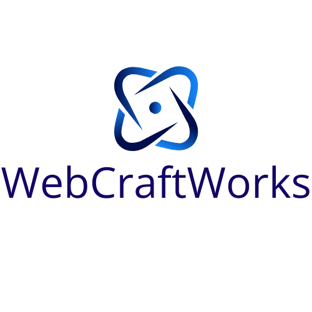The Future of Work: How Digital Technologies Are Transforming Industries
The integration of digital technologies into various business sectors is not just a trend—it's a revolution that is reshaping the landscape of work across the globe.
4/16/20242 min read


The integration of digital technologies into various business sectors is not just a trend—it's a revolution that is reshaping the landscape of work across the globe. From automation and artificial intelligence to remote collaboration tools, the way we work is undergoing a dramatic transformation. This blog explores the impact of these digital technologies on different industries and highlights how businesses can leverage them to stay competitive and innovative.
Digital Transformation Across Industries
Every industry, from manufacturing to healthcare, from retail to financial services, is experiencing the effects of digital transformation. Here’s a closer look at how digital technologies are making their mark:
Manufacturing: Smart factories equipped with IoT devices are revolutionizing production lines, allowing for real-time monitoring, predictive maintenance, and increased operational efficiency.
Healthcare: Digital health technologies, including telemedicine, AI diagnostics, and wearable health devices, are improving patient care and operational efficiencies in healthcare systems.
Retail: E-commerce platforms, digital payment systems, and personalized marketing through data analytics are transforming the retail landscape, providing a more customized shopping experience.
Finance: Fintech innovations like blockchain for secure transactions, robo-advisors for asset management, and digital wallets are changing how people manage and spend money.
Embracing the Digital Workplace
As digital technologies evolve, so does the concept of the workplace. Here’s how businesses are adapting:
Remote Work Tools: Tools like Zoom, Slack, and Microsoft Teams facilitate communication and collaboration among remote teams, making geographical boundaries irrelevant.
Project Management Software: Digital solutions like Asana, Trello, and Monday.com help streamline project management tasks, enhance team productivity, and keep projects on track.
Cybersecurity Measures: With the increase in digital workflows, cybersecurity has become a paramount concern. Businesses are investing in advanced security systems to protect sensitive data and maintain trust with their clients.
Leveraging AI for Business Efficiency
Artificial intelligence is a key driver of business efficiency in the digital age. Here’s how AI is being used:
Customer Service: AI-powered chatbots and virtual assistants are providing 24/7 customer service, enhancing customer experience while reducing operational costs.
Data Analysis: AI algorithms are capable of processing vast amounts of data to extract actionable insights, helping businesses make informed decisions faster.
Automation: AI is automating complex processes across various departments, from accounting to human resources, freeing up human workers to focus on more strategic tasks.
Conclusion
The digital transformation is not a future scenario but a present reality. Businesses that adapt to these changes swiftly and effectively will not only survive but thrive. Embracing digital technologies, understanding their impact across various sectors, and implementing them strategically are crucial steps for any business looking to leverage the full potential of the digital revolution.
For those yet to embark on this digital journey, the time to act is now. The future of work is here, and it’s digital. Engage with technology experts, invest in training your workforce, and start integrating digital technologies to reshape your business for the new era.
Contact
contact@webcraftworks.com
Subscribe to our newsletter
phone 407-574-9130
©2024-2025 WebCraftWorks | All Rights Reserved
